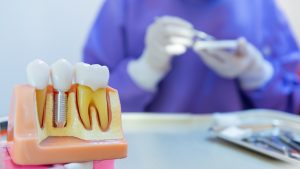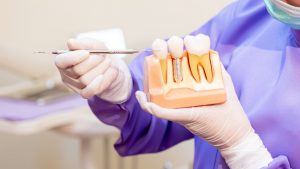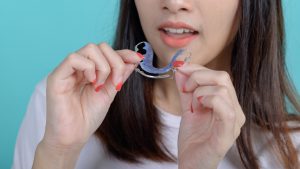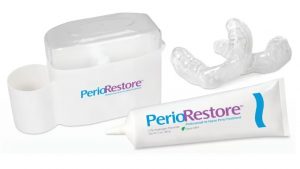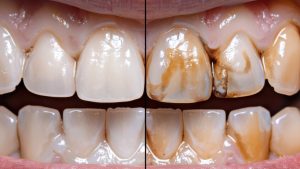Dental care is crucial from the very start of life, even before your baby’s first tooth appears. Early dental visits not only help maintain healthy teeth and gums but also lay the foundation for good oral hygiene habits that will last a lifetime. Studies show that starting dental care early can prevent tooth decay, address any early signs of dental issues, and help your child develop a positive relationship with their dentist.
At My Smile Dental Care in Anaheim, we prioritize your baby’s oral health with expert care in a comfortable, welcoming environment. Our team understands the unique needs of young children, offering gentle checkups and guidance tailored to their development.
So, when is the right time to take your baby to the dentist? While the answer may vary slightly depending on your child’s health, experts generally agree on a specific time frame. Let’s dive into when you should schedule that first dental visit to ensure your baby’s smile stays bright and healthy.
Ideal Age for Baby’s First Dental Visit
The American Academy of Pediatric Dentistry (AAPD) recommends that parents schedule their baby’s first dental visit by age 1 or within 6 months of the first tooth appearing. This early visit is important for checking the development of your baby’s teeth and ensuring there are no early signs of issues, such as cavities or gum problems.
For most babies, the first tooth typically appears around 6 months, making this the ideal time to schedule the appointment. Even though babies may have only a few teeth, an early visit allows the dentist to give helpful advice on proper oral hygiene, teething, and what to expect as more teeth emerge. This proactive approach ensures that any potential issues are addressed early, setting your child up for long-term oral health.
Common Signs It’s Time for a Dental Visit
The eruption of your baby’s first tooth is an important milestone and a clear signal that it’s time for their first dental visit. Around 6 months, when the first tooth typically emerges, it’s a good time to schedule an appointment. During this time, changes in your baby’s gums, such as redness or swelling, may also indicate the start of teething, which can cause discomfort and irritability.
Aside from the appearance of the first tooth, there are a few other signs that may indicate it’s time to visit the dentist. If your baby experiences excessive drooling or seems particularly fussy due to teething discomfort, it’s a good idea to consult a dental professional. These symptoms are normal during teething, but a dentist can offer tips on how to soothe your baby and ensure their gums are healthy.
In addition to teething symptoms, keep an eye out for any abnormal signs, such as discoloration or spots on the teeth that may indicate early tooth decay. If you notice any changes in your baby’s oral health that seem out of the ordinary, it’s best to schedule a dental checkup to catch potential issues early and ensure their teeth are developing properly.
What to Expect at Baby’s First Dental Visit
At your baby’s first dental visit, you can expect a gentle, non-invasive checkup designed to be both comfortable and informative. The dentist will carefully examine your baby’s teeth, gums, and mouth to ensure everything is developing as it should. Since babies typically have only a few teeth at this stage, the visit will focus more on assessing gum health and providing guidance on early oral care.
During the visit, the pediatric dentist will offer valuable tips on how to clean your baby’s gums even before their teeth appear, and once teeth do come in, they’ll explain the proper technique for brushing. They’ll also advise on the best toothbrushes for babies, such as those with soft bristles and small heads, as well as baby-safe toothpaste.
The dentist will discuss the importance of fluoride and may recommend fluoride supplements if necessary, depending on your baby’s age and the fluoride levels in your local water supply. Fluoride helps strengthen teeth and prevent decay, so it’s an important part of maintaining your baby’s oral health. The visit is a great opportunity to ask any questions about oral hygiene practices and ensure your baby’s dental care routine is on track.
How to Prepare Your Baby (and Yourself) for the Visit
Preparing for your baby’s first dental visit doesn’t have to be stressful for either of you. Here are some helpful tips to ensure a smooth and calm experience:
Tips for Calming Your Baby
Before the appointment, try to keep your baby’s routine as normal as possible to reduce any anxiety. If your baby is still very young, a nap beforehand can help them feel more comfortable and less fussy.
Bringing along a favorite toy or blanket can also provide comfort during the visit. It may also help to talk to your baby in a soothing voice during the ride to the dentist, reassuring them that everything will be okay.
What to Bring to the Appointment
Make sure to bring any important documents, such as your baby’s medical history and insurance information. It’s also helpful to have a list of any concerns or questions you may have about your baby’s oral health, as this will ensure you don’t forget anything important. Having this information ready will streamline the appointment and make the process easier for both you and the dental team.
Managing Parents’ Anxiety
It’s common for parents to feel anxious about their baby’s first dental visit. To reduce your own stress, remember that the first visit is designed to be quick and easy, with minimal procedures involved. The more relaxed you are, the more relaxed your baby will be.
Keep in mind that the goal of the visit is to create a positive association with dental care, so try to maintain a calm and positive attitude. At our dental clinic in Anaheim, we’re here to ensure both you and your baby have a comfortable and welcoming experience.
Conclusion
Taking your baby to the dentist early sets the foundation for a lifetime of healthy smiles. By scheduling their first dental visit by age 1 or within 6 months of their first tooth, you ensure their teeth and gums are developing properly and catch any potential issues early. With the right preparation and a gentle, non-invasive checkup, your baby will build a positive association with dental care that lasts a lifetime.
Frequently Asked Questions
Yes, it is still important to take your baby to the dentist even before they have teeth. The American Academy of Pediatric Dentistry recommends that babies have their first dental visit by age 1 or within 6 months of the first tooth. The dentist can examine your baby’s gums and offer tips on oral hygiene, even before teeth emerge.
For babies, it’s best to use a fluoride-free toothpaste that is specifically formulated for infants. These toothpastes are safe to swallow and help gently clean your baby’s gums and emerging teeth. Once your baby turns 2 years old, you can start using a small amount of fluoride toothpaste. Always use a soft-bristled toothbrush to prevent any damage to your baby’s delicate teeth and gums.
Even if your baby’s teeth appear healthy, it’s still important to schedule their first dental visit by age 1. Many dental issues, such as cavities or alignment problems, can develop without being immediately noticeable. The first dental visit is an opportunity for the dentist to check for any early signs of decay, gum issues, or developmental concerns that might not be visible yet.



